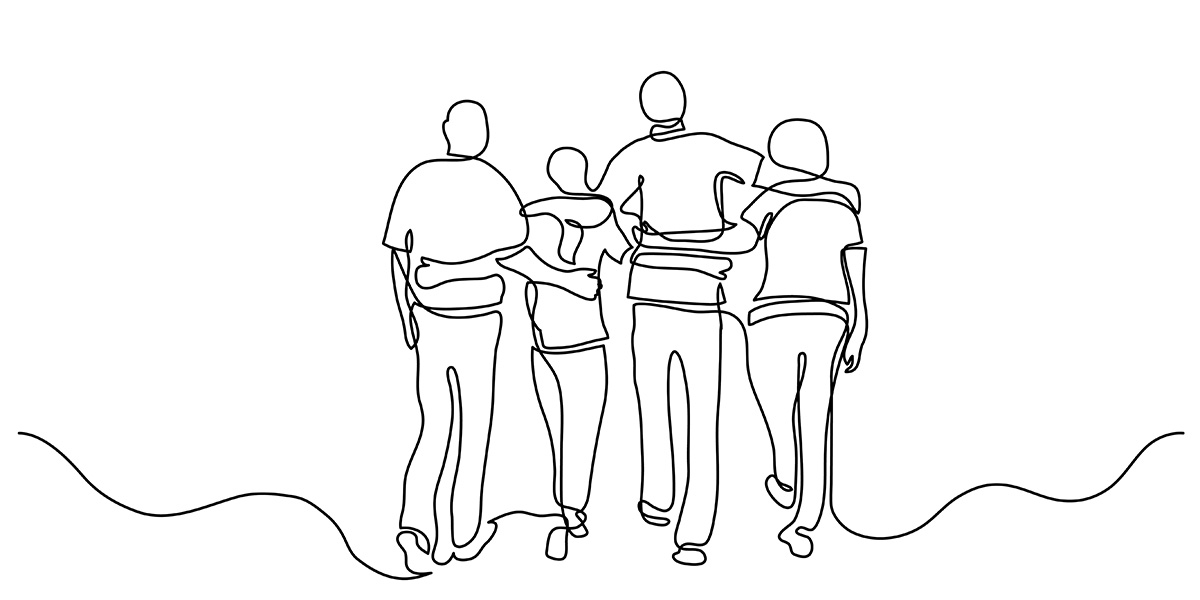When a member of the family or loved one is working on their addiction, it can be hard to know how you can best support them during their recovery journey. Family and close friends can play a vital role in the process and offer support in a variety of ways.
When defining family, we understand families can look very different from one to the next. Not always a nuclear family with mother, father, and children, a family can include grandparents, aunts, uncles, and a chosen family, including people not biologically related. A family includes those most important with strong emotional ties. In the article, we’ll cover some ways you can help a loved one in recovery from drugs and/or alcohol.
6 Ways to Help During Recovery
Family support during recovery offers several benefits for those in recovery. Many studies show that when families play an active role during treatment and recovery, the person in recovery is more likely to finish treatment and is less likely to relapse. The following offers some ways you can help during your loved one’s recovery.
Create a sober living environment
A sober living environment is one that encourages sobriety. Remove all alcohol, drugs, and paraphernalia from the home and create an atmosphere that enhances recovery. If invited to a celebration or get-together, ask the host if alcohol is served and prepare your loved one ahead of time. If early in treatment, it’s totally alright to skip the event. In time, he or she will learn strategies that can help with attending parties where alcohol is served.
Learn About Addiction
Addiction is complex and if never dealt with before, you may not know a lot of information about it. With information, you can better identify triggers and confront from a place of understanding rather than shaming or anger. There are a number of places you can find information about drug and/or alcohol addiction. You can try your community library, family support groups, and online resources.
Show Non-Judgement
It’s okay and important to show your concern and care for a loved one in recovery. Avoid accusing words or remarks. This can create a lack of trust. Addiction is a disease, and those affected deserve supportive communication.
Avoid Enabling
When a loved one is struggling, it’s natural to want to provide comfort and fix the situation. Substance addiction is a serious health condition that can affect all areas of life. It’s important to offer support and let the person in recovery develop accountability, responsibility, and independence. Setting boundaries can help prevent enabling.
Encourage Treatment or Group Meeting Attendance
Staying in treatment can be difficult for your loved one. Maybe they think it’s not that bad and not worth the time. Whatever the reason, with every no, encourage attendance. Regular attendance and active participation can bring a sense of belonging and purpose. Often, those struggling with substance misuse disorder lose quality social interaction and experience loneliness. And, as a family member, you can also attend group meetings specifically for friends and family.
Practice and Encourage Self Care
It’s easy to forget about taking care of ourselves during challenging times or high levels of stress. Encourage your loved one to eat healthful foods, enjoy activities and movement, and get plenty of rest. The same applies to the family. It can be easy to get overwhelmed and forget about personal needs. Take time to care for your personal needs, including some quiet, rest and relaxation as needed.
Drug and Rehab Treatment and Friends and Family Support Services
Pura Vida in Santa Rosa CA offers affordable outpatient drug and alcohol recovery services for men and women. Through a holistic approach, the team at Pura Vida applies evidence-based rehab services to help people rediscover the joy of sober living.
Friends and family can join the support group led by a licensed drug and alcohol counselor passionate about supporting and educating friends and family members of those with substance misuse disorder. This weekly event explores issues such as enabling, co-dependency, and self-care measures as well as local resources and books geared towards helping families.





